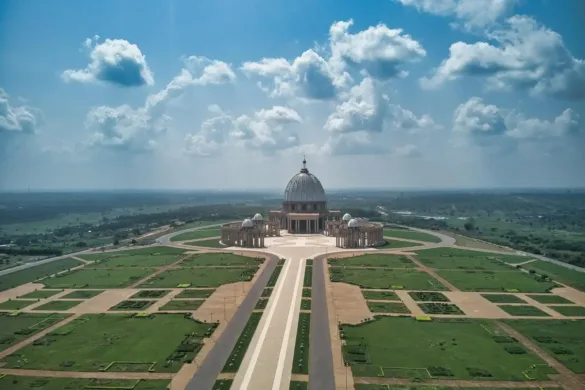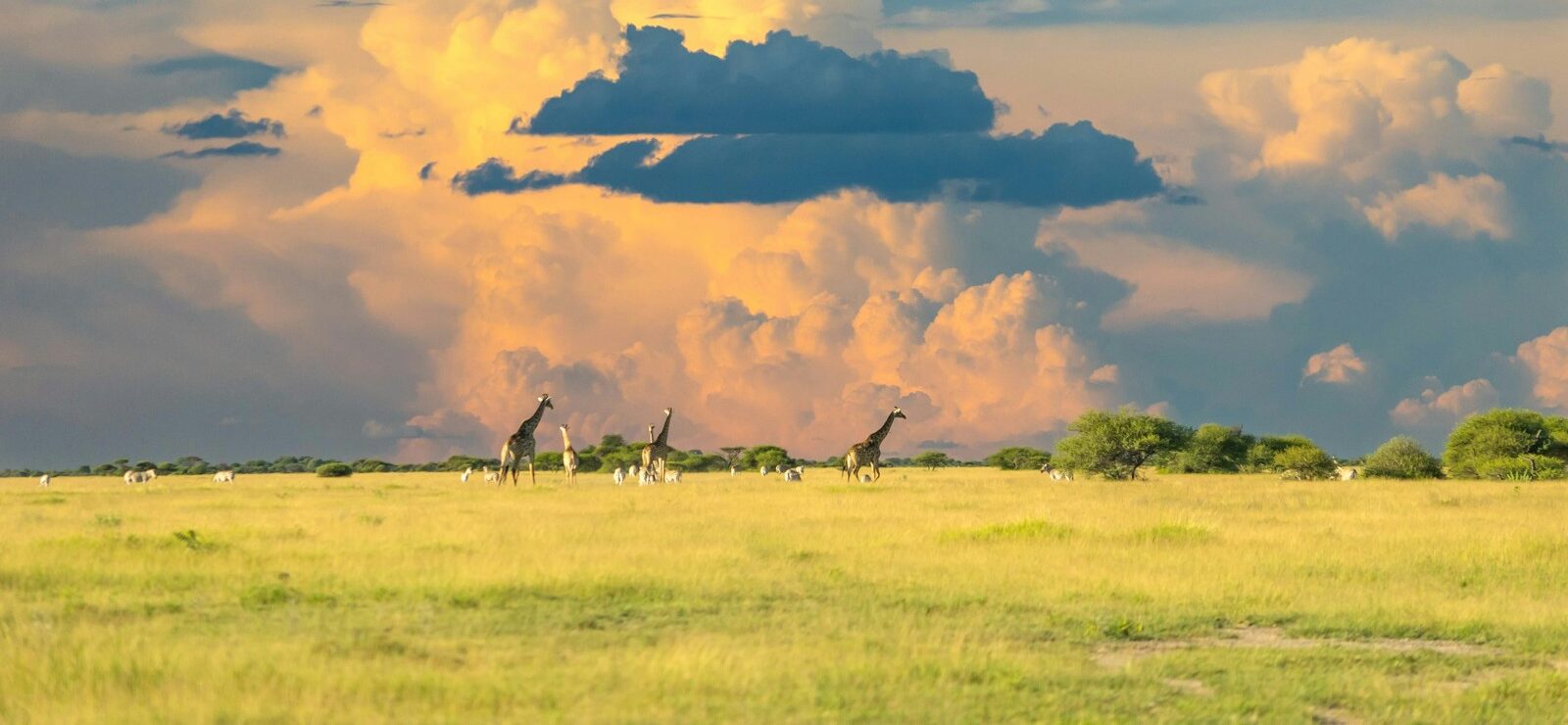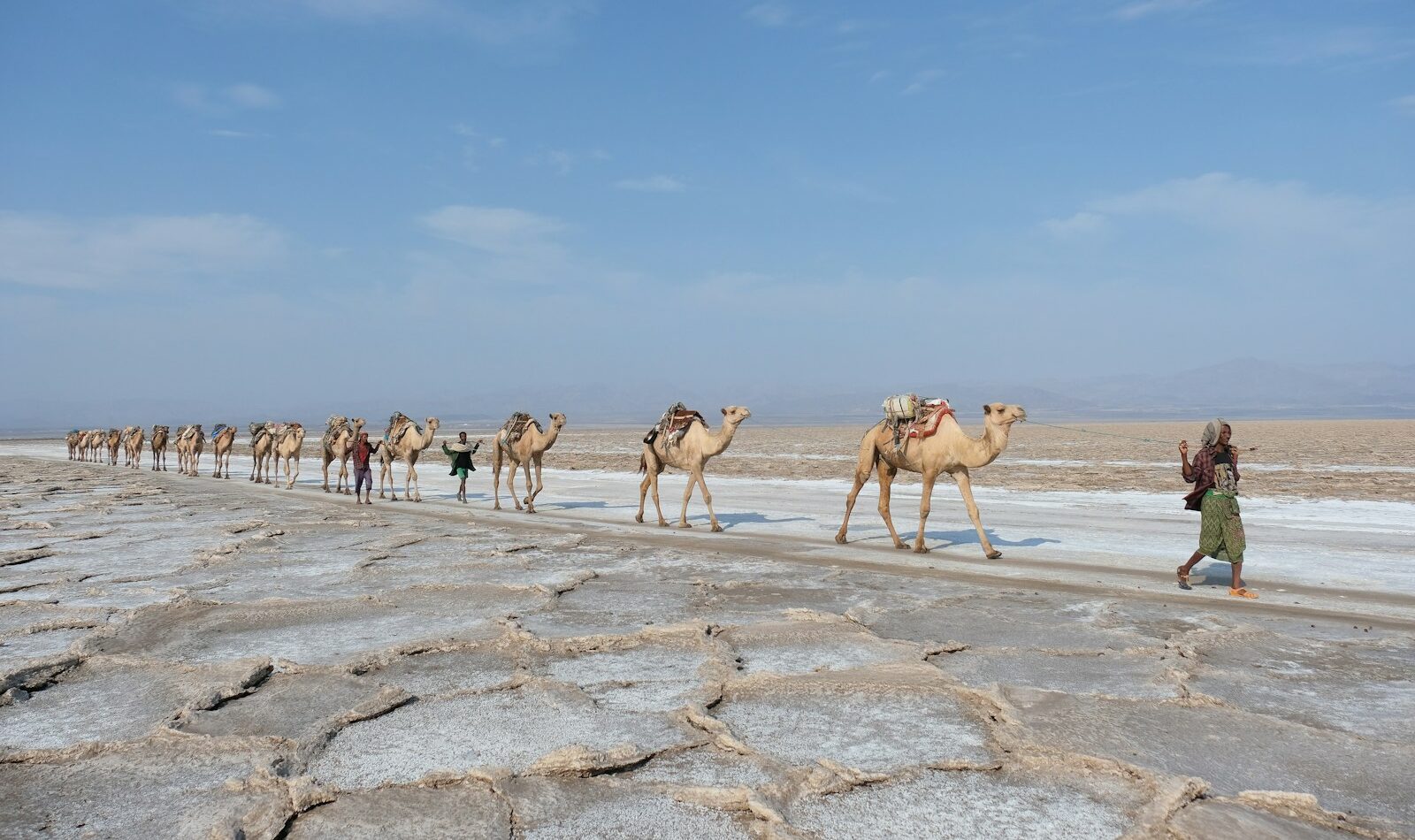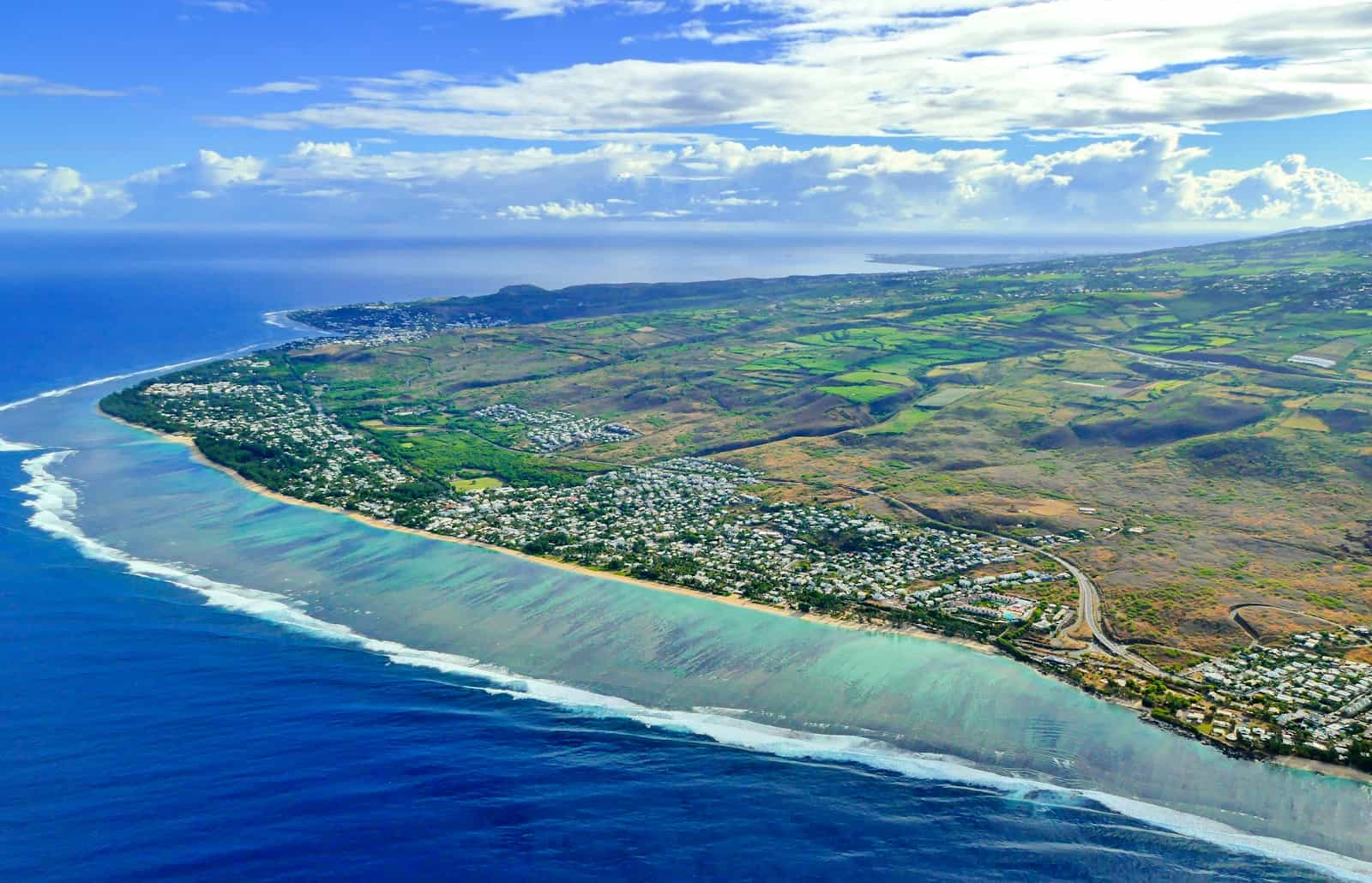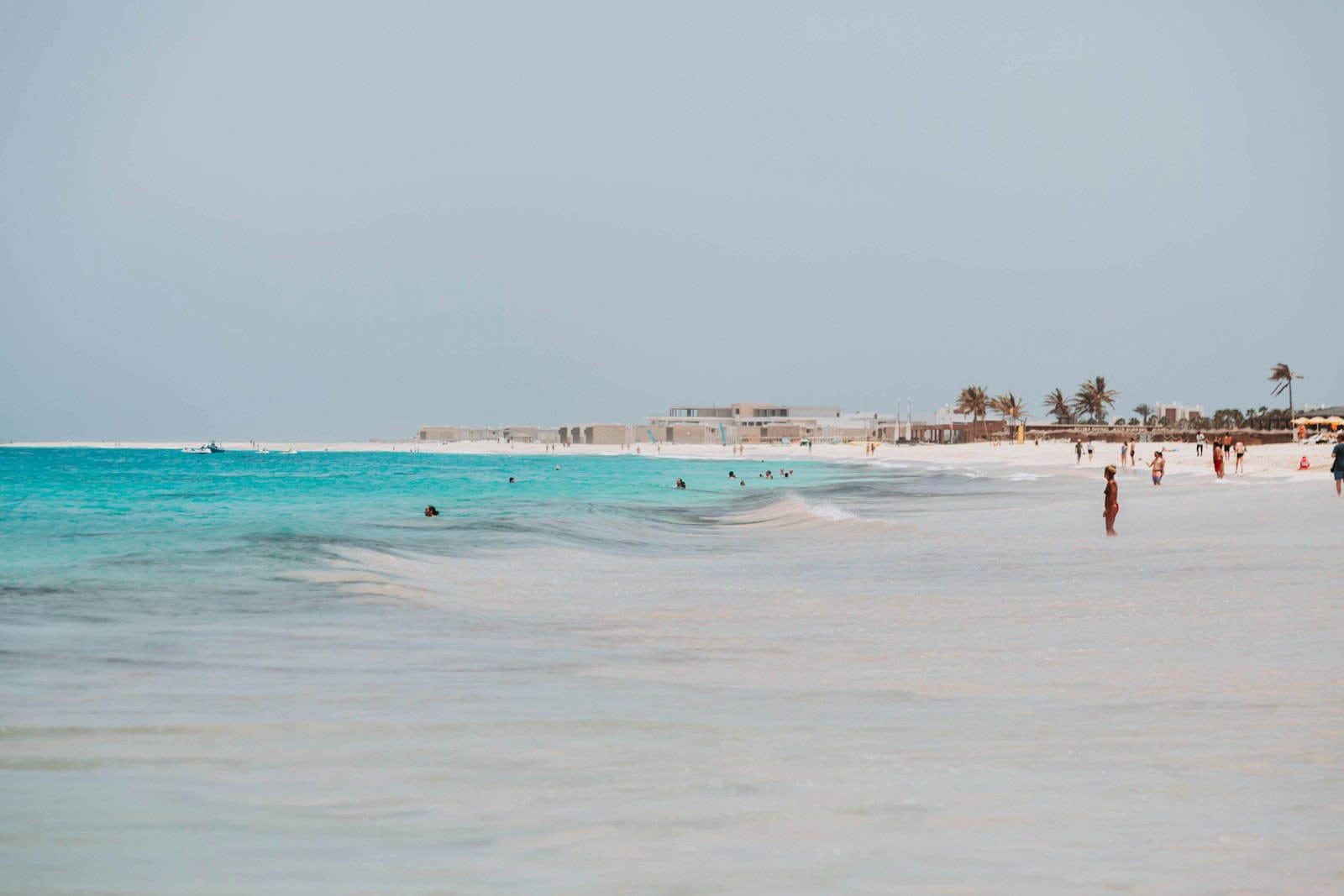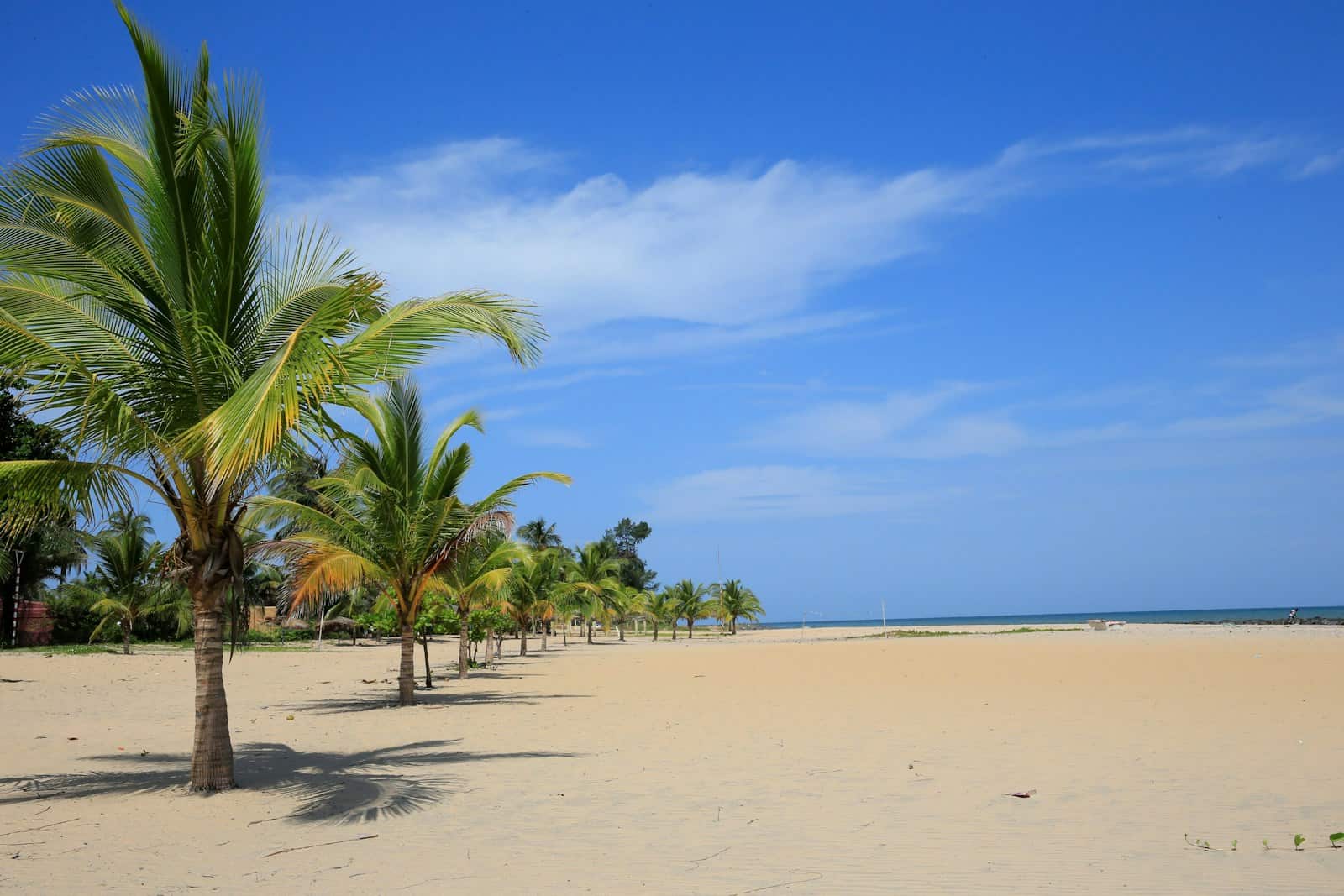North Africa Travel Guide: Timeless Wonders & Bold AdventuresIntro to North Africa Travel Guide
From ancient pyramids to Saharan dunes, North Africa is a region of dramatic contrasts, layered cultures, and unforgettable experiences. Stretching from the Red Sea to the Atlantic, it combines sweeping deserts, vibrant medinas, Roman ruins, and turquoise coastlines across seven distinct countries. Whether you’re chasing spice-scented souks or starry desert skies, this diverse part of the African continent invites exploration with both grit and glamour.
Start your journey with our complete North Africa Travel Guide and explore every country, region, and experience waiting for you.
Countries to Explore in North Africa
Algeria | Egypt | Morocco | Tunisia
💡Quick Facts:
Destination: North Africa
Continent: Africa
Country: Multiple (Regional grouping)
Administrative Division: N/A (North African bloc)
City: N/A (Major cities include Cairo, Casablanca, Tunis, Algiers, Tripoli)
Area: ~7,770,000 km² (3,000,000 mi²) — Approximate regional total
Population: ~260 million (2024 est.)
Density: ~33 people/km² (varies by country)
Capital: N/A — Regional (Major capitals: Cairo, Algiers, Rabat, Tunis, Tripoli)
Regions/Subregions:
• Egypt
• Libya
• Tunisia
• Algeria
• Morocco
• Western Sahara (disputed territory)
Official & Regional Languages: Arabic (Modern Standard & dialects), Berber (Tamazight), French (in Algeria, Morocco, Tunisia), English (in tourism)
Currency: Egyptian Pound (EGP), Libyan Dinar (LYD), Tunisian Dinar (TND), Algerian Dinar (DZD), Moroccan Dirham (MAD)
Time Zone(s): GMT+1 to GMT+2
Airports: Cairo International (CAI), Mohammed V International (CMN), Tunis-Carthage (TUN), Houari Boumediene (ALG), Tripoli Mitiga (MJI)
Climate: Mediterranean coastlines, arid Sahara desert, oases and highland regions
Known For: Pyramids of Giza, Sahara Desert, Roman ruins, Islamic architecture, ancient medinas, souks, coastal resorts
🛂Arrival Info:
• Egypt: eVisa available for over 70 nationalities
• Morocco and Tunisia: Visa-free for many Western countries up to 90 days
• Algeria: Visa required; limited eVisa access for select nationalities
• Libya: Visa required; strict entry controls (advisories in effect)
• Western Sahara: Entry through Morocco; no separate visa regime
• Official Visa Portals: Egypt eVisa Portal, Morocco Ministry of Foreign Affairs, Tunisia eVisa Service
– Egypt eVisa
– Morocco Visa Info
– Tunisia Entry Requirements
💉Health Info:
• Recommended Vaccines: Hepatitis A & B, Typhoid, Rabies (for extended stays), Meningitis (for travelers to southern desert areas)
• No malaria risk; waterborne diseases possible in rural areas
• Modern hospitals in urban centers (Cairo, Tunis, Casablanca, Algiers)
• Limited medical access in desert regions and rural areas
• Travel insurance with medical evacuation is strongly recommended
✅ Check travel insurance options for travel emergencies, delays, and medical needs abroad — Get coverage here
✅ Stay Informed with Official Updates: WHO – International Travel & Health | CDC – Travel health updates
🚨Travel Advisory:
• Egypt, Morocco, Tunisia: Generally safe, Level 2: Exercise Increased Caution
• Algeria: Level 2–3 depending on region; safer in major cities
• Libya and parts of Western Sahara: Level 4: Do Not Travel (ongoing conflicts and instability)
• Petty crime risks: pickpocketing, scams in tourist-heavy areas
• Border areas and desert crossings require caution due to security concerns
✅ Stay Informed with Official Updates: US Travel Advisory | UK Foreign Travel Advice
📅Holidays:
• Eid al-Fitr and Eid al-Adha — Dates vary (major Islamic holidays)
• Revolution Day (Egypt, January 25)
• Throne Day (Morocco, July 30)
• Independence Days: Tunisia (March 20), Algeria (July 5), Libya (December 24)
• Mawlid al-Nabi — Prophet Muhammad’s Birthday (dates vary)
💰Visitor Info:
• Currency exchange best done in banks or official exchange offices
• Credit cards widely accepted in hotels and urban areas; cash preferred in souks and rural areas
• Tipping customary: 10% in restaurants and for services
• Duty-free limits: Varies, standard 200 cigarettes, 1 liter alcohol
• Average Daily Budget: Budget $50–100, Midrange $150–250, Luxury $400+
✈️Airports:
Regional hubs:
• Cairo International (Egypt – CAI)
• Casablanca Mohammed V (Morocco – CMN)
• Tunis–Carthage (Tunisia – TUN)
• Algiers Houari Boumediene (Algeria – ALG)
• Domestic networks connect major cities, desert outposts, and Red Sea resorts
• Ground transport from airports: Taxis, airport shuttles, or metro (in Cairo and Algiers)
✅ Delayed or canceled flight? Check if you’re eligible for compensation
🚍Transport:
• Metro systems in Cairo and Algiers
• Taxis and ride-hailing apps (Careem, Uber) in major cities
• Long-distance buses and shared taxis (louages) between cities
• Rail networks in Egypt, Morocco, Tunisia, Algeria (ONCF, SNTRI)
• Desert safaris and 4×4 excursions require local guides and permits
• Driving is on the right; International Driving Permit (IDP) recommended
✅ Book reliable airport transfers and in-city rides in advance. Reserve your ride here
📶Connectivity:
• SIM cards from Orange, Maroc Telecom, Tunisie Telecom, Vodafone Egypt
• Mobile coverage is strong in urban areas; weak in Sahara desert regions
• Wi-Fi widely available in hotels, cafes, public hotspots in cities
• Roaming is expensive; local SIMs or eSIMs recommended
✅ Stay connected abroad with affordable eSIM data packs. Get your eSIM here
📜Laws & Etiquette:
• Legal drinking age: 18 (varies by country)
• Alcohol restrictions in Libya; only available at select venues in Morocco and Tunisia
• LGBTQ+ rights: Legal challenges and limited social acceptance across the region
• Conservative dress codes recommended, especially in mosques and rural communities
• Photography restrictions at military sites, border areas, and some religious places
🛡️Emergency Info:
• Emergency Numbers: Egypt (122), Morocco (19), Tunisia (197), Algeria (17)
• Embassies and consulates are present in capital cities
• Tourist police available in Egypt and Morocco’s major tourist zones
• Crisis hotlines and traveler assistance through embassy services
✅ Use embassy locator tools: Embassies Worldwide
🌦️Weather:
• Mediterranean climate along coasts: mild, wet winters; hot, dry summers
• Sahara desert: extremely hot and arid; temperatures exceed 40°C (104°F) in summer
• Best time to visit: October–April (cooler temperatures, minimal sandstorms)
• Coastal areas are temperate; desert interiors experience extreme heat and cold shifts
✅ Stay prepared—check the weather forecast for your destination — Weather Forecast
North Africa by Region – Countries to Explore
North Africa is often seen as a single geographic entity, but it’s best understood in clusters shaped by climate, culture, and travel flow. Here’s how it breaks down:
Maghreb – Coastal Cultures and Mountain Backdrops
Home to the Atlas Mountains, Atlantic and Mediterranean coasts, and Berber heartlands, the Maghreb blends Saharan edges with ocean breezes.
- Morocco – From Marrakech’s spice markets to the blue lanes of Chefchaouen
- Algeria – Towering dunes, Roman ruins, and French colonial charm
- Tunisia – Ancient Carthage, Mediterranean beaches, and desert oases
- Libya – Known for Greco-Roman ruins and Saharan terrain (travel restrictions apply)
Nile Valley – River Civilizations and Ancient Grandeur
The cradle of one of the world’s oldest civilizations, this region is defined by the Nile River’s fertile banks.
- Egypt – Pyramids of Giza, Luxor’s temples, Red Sea resorts
- Sudan – Ancient Nubian pyramids and the lesser-known stretch of the Nile
Saharan Africa – Desert Depth and Nomadic Identity
Here lies the vast inland heart of North Africa — a zone of sand seas, date palms, and nomadic heritage.
- Western Sahara (Disputed Territory) – Wind-carved dunes and coastal cliffs
- Mauritania (sometimes included) – Camel caravans, dunes, and ancient libraries in Chinguetti
Top Places to Visit in North Africa
North Africa’s top destinations span from iconic cities to wild landscapes — here’s where to go.
Cultural Capitals
Cairo, Egypt
Buzzing and chaotic, Cairo mixes Islamic mosques, Coptic churches, and the iconic Egyptian Museum. The city is your launchpad to Giza’s pyramids and Nile cruises.
Marrakech, Morocco
A whirlwind of colors, snake charmers, and riad courtyards. Marrakech is a cultural feast at the edge of the Atlas.
Tunis, Tunisia
From the medina to ancient Carthage and beach-lined suburbs, Tunis reveals layers of Roman, Arab, and French influence.
Natural Wonders
Erg Chebbi Dunes, Morocco
Near Merzouga, these orange sand dunes offer the quintessential Sahara experience with camel treks and desert camps.
White Desert, Egypt
Alien-like chalk formations create a surreal landscape in this remote part of Egypt’s Western Desert.
Hoggar Mountains, Algeria
A remote, otherworldly range in the middle of the Sahara, favored by adventurous travelers and Tuareg guides.
UNESCO Heritage Sites
The Pyramids of Giza, Egypt
The last surviving ancient wonder, standing guard over Cairo’s suburban sprawl.
Dougga, Tunisia
Arguably the best-preserved Roman town in North Africa, with a forum, theater, and temples.
Ksar of Ait Benhaddou, Morocco
A fortified Berber village featured in Game of Thrones and Gladiator, nestled in the High Atlas.
Emerging & Off-the-Beaten-Path
Aswan, Egypt
Far less chaotic than Cairo, Aswan offers Nubian hospitality, tranquil Nile islands, and easy access to Abu Simbel.
Ghardaïa, Algeria
A living example of Ibadite Muslim culture, with fortified towns and palm-filled valleys.
Matmata, Tunisia
Troglodyte dwellings that inspired the Star Wars “Tatooine” scenes — and still house Berber families.
How to Choose Where to Go in North Africa
Each North African country delivers a distinct travel flavor. Here’s how to choose based on your trip goals:
Adventure Seekers
- Morocco’s Atlas Mountains and Sahara dunes
- Egypt’s Red Sea diving and desert safaris
- Tunisia’s inland oases and camel routes
History Buffs
- Egypt’s pharaoh tombs and Roman sites
- Algeria’s Timgad and Djemila ruins
- Tunisia’s Carthaginian and Byzantine layers
Nature Lovers
- Erg Chegaga and Erg Chebbi in Morocco
- The White Desert and Siwa Oasis in Egypt
- Hoggar and Tassili n’Ajjer plateaus in Algeria
Beach Goers
- Djerba Island and Hammamet in Tunisia
- Agadir and Essaouira in Morocco
- Sharm El-Sheikh and Dahab in Egypt
Culture & Spirituality
- Sufi heritage in Sudan and Morocco
- Jewish sites in Tunisia and Egypt
- Islamic art and medinas across the region
Multi-stop ideas:
- Pair Marrakech + Fes + Sahara camp for a Morocco circuit
- Combine Cairo + Luxor + Aswan + Red Sea in Egypt
- Link Tunis + Dougga + Djerba on a Tunisia road trip
How to Travel Between Countries in North Africa
North Africa’s infrastructure varies by country, but with good planning, overland and air options abound.
Air Travel
- Major hubs: Cairo (CAI), Casablanca (CMN), Tunis (TUN)
- Budget carriers: EgyptAir Express, Air Arabia, Tunisair Express
- Intercontinental flights from Europe, Middle East, and West Africa
Overland Crossings
- Morocco ↔ Algeria: Closed (as of 2025)
- Egypt ↔ Sudan: Open at Wadi Halfa (check safety updates)
- Tunisia ↔ Algeria: Open via road routes with checkpoints
Ferries
- Morocco ↔ Spain: Tangier to Algeciras
- Tunisia ↔ Italy: Tunis to Palermo or Civitavecchia
- Egypt ↔ Saudi Arabia: Suez/Gulf of Aqaba crossings
Visas and Borders
- Egypt, Tunisia, and Morocco offer visa-free or eVisa entry to many nationalities
- Libya and Sudan have more complex or restricted entry
- Western Sahara travel requires specific routing via Morocco
Best Times to Visit North Africa
North Africa’s seasons vary by coast, desert, and mountain.
Spring (March–May)
- Ideal across Morocco, Tunisia, and Egypt
- Cooler desert nights, blooming valleys
- Best for Sahara treks and city exploring
Summer (June–August)
- Extremely hot inland (Sahara, Egypt)
- Coastal areas like Essaouira and Tunis are pleasant
- Not ideal for desert travel
Autumn (September–November)
- Second-best time region-wide
- Great light for photography, comfortable weather
- Festivals in Morocco (e.g., Erfoud Date Festival)
Winter (December–February)
- Snow in the Atlas Mountains
- Mild weather in Cairo, Tunis, and Marrakesh
- Great for city breaks, poor for beach travel
Must-See Experiences Across North Africa
- Ride a camel into the Sahara at sunset
A slow, swaying journey across sand seas in Morocco, Tunisia, or Algeria. - Explore Luxor’s Valley of the Kings
Walk through ancient tombs decorated with pharaohs’ secrets and cosmic artwork. - Sip mint tea in a Marrakech riad
Cool tiled courtyards, ornate lanterns, and the sound of distant prayer calls. - Stargaze in the White Desert
Camp under chalk towers in one of the world’s most surreal landscapes. - Wander through Fes’ ancient medina
A sensory maze of leather tanneries, spice stalls, and artisan workshops. - Visit ancient Carthage
Roam the ruins of a civilization that once rivaled Rome, now overlooking the Mediterranean. - Watch traditional Gnawa music in Essaouira
Soulful rhythms trace spiritual African roots and Moroccan history. - Dive or snorkel the Red Sea
Crystal-clear water and vibrant reefs off Dahab or Hurghada. - Explore the kasbahs of the Draa Valley
Adobe castles rise from palm groves in Morocco’s forgotten south. - Experience a Berber wedding festival
Timeless traditions in Imilchil or Ksar Hadada — with music, dress, and ritual.
Book unforgettable North Africa tours and experience the best things to do in Morocco, Egypt, Tunisia, and beyond — from medina explorations and desert safaris to reef dives and kasbah sleepovers.
Travel Safety & Cultural Etiquette in North Africa
North Africa is generally safe for travelers, especially in tourist-heavy zones. But awareness of regional nuances is key to a smooth experience.
Regional Safety Considerations
Morocco, Tunisia, and Egypt
- Tourist zones are well-patrolled and safe
- Petty theft can occur in markets — stay alert in medinas
- Women may face street harassment — dress modestly and walk with confidence
Algeria and Sudan
- Require additional caution due to bureaucratic travel systems and occasional political unrest
- Travel insurance and pre-arranged tours recommended
Libya and parts of Sudan
- Avoid travel due to active conflict or instability (as of 2025)
- Entry is highly restricted
Desert Travel
- Always travel with a guide
- Carry plenty of water, sun protection, and emergency contacts
- Cell service is minimal in remote areas
Cultural Etiquette Tips
Dress Modestly
- Especially for women, covering shoulders and knees is respectful
- Lightweight long clothing is ideal for both respect and sun protection
Religious Sites
- Remove shoes when entering mosques
- Photography often restricted inside — ask first
- Avoid loud behavior during prayer times
Greetings and Gender Norms
- A handshake is common, but men should not initiate contact with women
- Use “Salam Alaikum” to greet politely
- Always accept tea or small offerings; it’s a key hospitality gesture
Alcohol & Public Behavior
- Legal but limited access in Muslim-majority countries
- Avoid public intoxication — it’s frowned upon, even where alcohol is legal
LGBTQ+ and Solo Female Travel
- LGBTQ+ travelers should be discreet; public affection may attract unwanted attention
- Solo female travelers thrive best in Morocco and Egypt with proper planning
- Consider joining small group tours for added safety and access
Health Tips
- Vaccinations: Hep A, Typhoid, and Tetanus recommended
- Malaria not prevalent in North Africa, but dengue risk exists in some southern regions
- Avoid tap water in Egypt, Sudan, and Algeria — use bottled or filtered water
North Africa at a Glance – Key Travel Insights
Essentials
A quick-reference guide for regional trip planning.
Geography
- Sahara Desert, Atlas Mountains, Nile River, Mediterranean and Atlantic coasts
- Terrain: dunes, arid plateaus, river valleys, coral seas
Currency
- Morocco: Moroccan Dirham (MAD)
- Tunisia: Tunisian Dinar (TND)
- Egypt: Egyptian Pound (EGP)
- Algeria: Algerian Dinar (DZD)
- Sudan: Sudanese Pound (SDG)
- Libya: Libyan Dinar (LYD)
Entry Points
- Top airports: Cairo, Casablanca, Tunis, Marrakech
- Ferry ports: Tangier, Tunis, Alexandria
Language
- Arabic (primary), with French widely spoken in Morocco, Tunisia, Algeria
- English in tourist zones
- Amazigh (Berber) in rural Morocco and Algeria
Religion
- Islam is dominant
- Small Christian and Jewish communities in Morocco, Tunisia, and Egypt
- Expect prayer calls, Ramadan observance, and conservative social norms
Cost Range
- Budget ($): Sudan, inland Tunisia, and rural Egypt
- Midrange ($$): Morocco, Egypt coastal towns
- Luxury ($$$): Cairo, Marrakech, Red Sea resorts
Digital Tools
- eSIM providers: Airalo, Holafly (coverage varies by country)
- Apps: Google Translate (Arabic dialects), Maps.me for offline navigation, Careem (Uber alternative in Egypt)
Travel Style
- Ideal for slow travel, overland journeys, and immersive culture-based trips
- Excellent for group and solo travel — with added care in conservative or remote areas
Still Planning? See Our Full North Africa Country List
Ready to go deeper? Explore each country with our dedicated travel guides and discover unique routes, hidden experiences, and up-to-date safety tips:
- Morocco Travel Guide — Coastal cities, medinas, Sahara escapes
- Egypt Travel Guide — Pharaohs, pyramids, and Red Sea diving
- Tunisia Travel Guide — Roman ruins, desert oases, and Mediterranean flair
- Algeria Travel Guide — Underrated Roman sites and Saharan culture
- Western Sahara Guide — Windswept coasts and desert adventure (via Morocco)
- Libya Travel Overview — Currently restricted but rich in history (for future consideration)
Use these guides to piece together your dream route — from coastal hammams to desert kasbahs.
Final Planning Tips for Your North Africa Adventure
Make your trip smoother with these practical tips:
- Pack for range: Even in the desert, nights can get cold — bring layers.
- Download offline maps: Many remote regions lack signal; Maps.me and Google Maps offline are essential.
- Carry cash: ATMs can be unreliable outside cities — always have local currency.
- Use local SIMs or eSIMs: Avoid roaming by purchasing in-country or using multi-country eSIMs.
- Plan Sahara tours in advance: Desert trips are logistics-heavy — secure your driver, camp, and camel ahead.
- Book museum and pyramid entries early: Cairo and Luxor often sell out during high season.
- Mind Ramadan: Many shops and eateries may close during daylight hours — plan accordingly.
- Respect local culture: Ask before taking photos of people or entering rural homes or villages.
Explore top North Africa tours and things to do in each country. For more expert travel tips and unforgettable guides, visit our Homepage and start your journey today.

